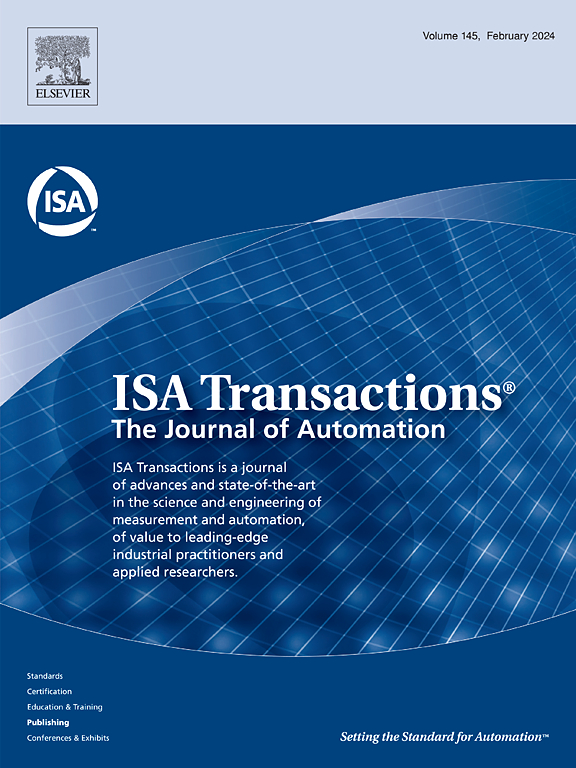Resilient consensus control for networked robotic manipulators under actuator faults and deception attacks
IF 6.3
2区 计算机科学
Q1 AUTOMATION & CONTROL SYSTEMS
引用次数: 0
Abstract
Resilient consensus control refers to a system’s ability to maintain agreement among its components despite disruptions, failures, or malicious attacks. This paper introduces a resilient control algorithm for a group of robotic manipulators to achieve leader-follower consensus within their workspace, despite actuator faults and deception attacks affecting exchanged signals. The proposed approach leverages adaptive control algorithms to develop the control laws. It begins by introducing an adaptive fault-tolerant tracking control to ensure tracking performance despite model uncertainties, actuator faults, and external disturbances. An adaptive observer is then developed to mitigate the effects of false data injections caused by deception attacks. A key feature of this control framework is its ability to operate without requiring fault and attack detection, thereby improving the system’s robustness and applicability. The stability of the network and the convergence of the filtered errors are demonstrated using Lyapunov techniques and the equivalence principle. The proposed control framework is validated through numerical simulations involving a network of four heterogeneous manipulators, with results confirming the approach’s effectiveness in enhancing system reliability.
执行器故障和欺骗攻击下网络化机器人的弹性共识控制。
弹性共识控制是指系统在中断、故障或恶意攻击的情况下保持其组件之间一致的能力。本文介绍了一种弹性控制算法,用于在执行器故障和欺骗攻击影响交换信号的情况下,在一组机器人操作器的工作空间内实现领导-追随者共识。该方法利用自适应控制算法来制定控制律。首先引入自适应容错跟踪控制,以确保在模型不确定性、执行器故障和外部干扰的情况下仍能保持跟踪性能。然后开发了自适应观察者来减轻欺骗攻击引起的虚假数据注入的影响。该控制框架的一个关键特征是它能够在不需要故障和攻击检测的情况下运行,从而提高系统的鲁棒性和适用性。利用李雅普诺夫技术和等效原理证明了网络的稳定性和滤波误差的收敛性。通过一个由四个异构机械手组成的网络的数值仿真验证了所提出的控制框架,结果证实了该方法在提高系统可靠性方面的有效性。
本文章由计算机程序翻译,如有差异,请以英文原文为准。
求助全文
约1分钟内获得全文
求助全文
来源期刊

ISA transactions
工程技术-工程:综合
CiteScore
11.70
自引率
12.30%
发文量
824
审稿时长
4.4 months
期刊介绍:
ISA Transactions serves as a platform for showcasing advancements in measurement and automation, catering to both industrial practitioners and applied researchers. It covers a wide array of topics within measurement, including sensors, signal processing, data analysis, and fault detection, supported by techniques such as artificial intelligence and communication systems. Automation topics encompass control strategies, modelling, system reliability, and maintenance, alongside optimization and human-machine interaction. The journal targets research and development professionals in control systems, process instrumentation, and automation from academia and industry.
 求助内容:
求助内容: 应助结果提醒方式:
应助结果提醒方式:


